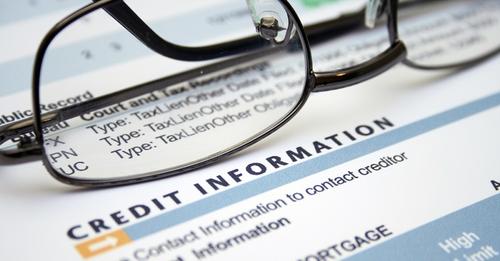- Home
- Repair 101
- Ways to Rebuild Credit
7 Smart Ways To Rebuild Credit Like A Pro - Boost Your Credit Score, Today!

One of the best ways to rebuild credit is to understand what your credit history looks like to creditors and lenders now before you need to apply for that personal loan, a new car, or even a brand new home.
Swiping your credit card to pre-order that new gaming console may have made you feel good at the moment, but your creditor doesn’t care that your purchase(s) made your children happy; what they care about is that you make your monthly repayments on time – and with interest.
Are you still having problems getting approved for credit cards? Is your interest rate for loans too high? Or maybe you’re worried that past poor financial decisions will get in the way of getting a loan for a car or borrowing money for the holidays? Whichever the case, having a credit score below 620 is a cause for concern.
Bad credit can sometimes feel like a never-ending nightmare. After all, a low or poor credit score can have monumental consequences like derogatory marks that can hurt your credit report for years, exorbitant interest rates, denied loan applications, high insurance premiums, and more!
Learn The Best Ways To Rebuild Credit, Today!
Want to do something about your bad credit score but not sure how to pull it off? Don’t worry about it; the good news is there are ways to rebuild credit and get your credit scores back on the positive side.
But first, What is credit repair?
Credit repair is not rocket science; with a bit of patience, even a novice can successfully repair their credit report and start seeing an improvement.
Credit repair can be defined - as the process of improving your credit rating by removing from your credit file all:
- disputable
- unfair
- erroneous
- or contestable records.
Can you rebuild your own credit? Yes, of course, you can! By taking the time to understand your credit report and the many ways to repair credit available to the public, you can work towards fixing your credit rating on your own.
Here’s why it’s crucial to repair and boost your credit score, Now:
- When you apply for a mortgage or any other loan product, your credit report is almost always reviewed by the lender.
- Details on your credit report are a history of your past financial activity and are among the primary factors that lenders, landlords, and even employers consider before working with you.
- Recently, the lender’s policies have become stricter, and lenders are tightening lending standards, which means that even traces of credit issues in your credit report can be the difference between approval and denial.
Make an effort to rebuild your credit before applying for a credit card, mortgage, or other loan. The lender will not be aware of your previous financial mistakes and will approve your application. Besides, your score will have improved by a couple of points, which will set you up for a smooth, quick approval and lower interest rates.
Understanding And Repairing Your Credit History
Every action you take determines your credit score, like anything involving borrowing and paying back debts. That means every loan and credit card account may be on your credit report.
Your credit score indicates to future lenders whether you’re creditworthy or high-risk, which in turn determines whether your credit applications are approved and whether you receive favorable terms (such as reduced interest rates) for future financial deals. When looking into ways to rebuild credit, it’s a smart idea to monitor, review and understand your credit report files and ensure that the information is always up to date and correct.
Here Are 7 Ways To Rebuild Credit & Boost Your Credit Score:

#1. Get Your Credit Reports And Check For Mistakes
Again, the ideal way to start credit repair is to understand where your current credit score stands. Your credit history is crucial for repairing and improving your score, and understanding your report can help you keep track of your credit history.
It’s not uncommon for credit files to contain erroneous information. One common mistake involves having accounts of a family member or stranger with a similar name to yours in your credit file.
Go to annualcreditreport.com for a free copy of your credit report or contact all three major credit rating agencies – get a copy of your credit reports once you have them review each account to see if any lender has made an error by placing a negative item in your credit file. The next step is to challenge any errors or identity theft issues, and in doing, correct and repair your bad credit.
#2. Pay Off Existing Debts
But, if you have several accounts, create a budget to help you pay them off.
If you’re struggling to get out of debt, there are several debt management strategies out there, such as debt consolidation, that can help.
**NOTE** Making a payment for default accounts won’t remove the derogatory item from your report. For this reason, before you pay off default accounts, negotiate with your lender to get the negative items removed from your record. Please request this agreement in writing before you make any payments, and have them send you a copy showing that they agree to remove the derogatory mark.
#3. Negotiate With Your Lender(s)
Loan and credit card repayments are the most significant factors determining your credit rating (score). And one of the best ways to rebuild credit is always to make repayments on time.
Unfortunately, life and other external factors can get in the way sometimes.
So if you’re looking to fix your credit score but know you cannot make repayments on time, it’s best to let your lenders know so it will not automatically get recorded as a default. Often, lenders are willing to negotiate a formal or informal agreement with you.
#4. Update Your Credit Report With Positive Information
Did you know there are ways to rebuild credit without paying off debt?
Another excellent way to repair your credit and show lenders that you’re a creditworthy borrower is to add positive information to your credit score. Remember, lenders are looking to see stability in your financial and personal life before they can extend you any credit.
So if you:
- Are a homeowner
- Are married
- Resided at the same address for years
- Been working for the same employer for years
These factors positively reflect your credit and have a ‘silent’ but significant impact on your credit score. If some of this information is not on your credit report, notify the credit reporting bureau to have it included.
#5. Pay Off That Utility Bill
Lenders are now checking utility bills to make sure you’re keeping up with bill payments. If you have utility accounts in arrears, pay them. Because if you don’t, it will be “a definite no” from lenders.
So make sure you pay off that:
- Electricity bill
- Gas bill
- Water bill
And start your credit repair journey, Today.
#6. Get Help From Experts
Although attempting credit repair alone is possible, sometimes, it makes sense to have a helping hand. There are many different avenues of support available for individuals plagued by horrible credit and those who need debt help.
Experts in credit repair or financial counselors can help you approach your situation objectively and offer invaluable advice on debt solutions and credit repair. Besides, consulting experts can help you avoid wasting time and money on credit repair strategies that don’t work.
#7. Stay The Course!
You’ve reviewed your credit files, disputed errors, paid off existing debts, and updated your credit report with positive information – congratulations!
But you’re not done yet. Moving forward, monitor your credit score, make sure you stay on track, and maintain the proper habits and techniques you’ve developed while learning the best ways to rebuild credit.
It is now time to take control of your credit and get back on your feet financially. Start your journey to a higher credit score and favorable credit options Today with these seven ways to rebuild credit.
Free 5-Day - Start Repairing Credit Challenge - Do It Yourself - Including A Live Expert Question & Answer Session.







